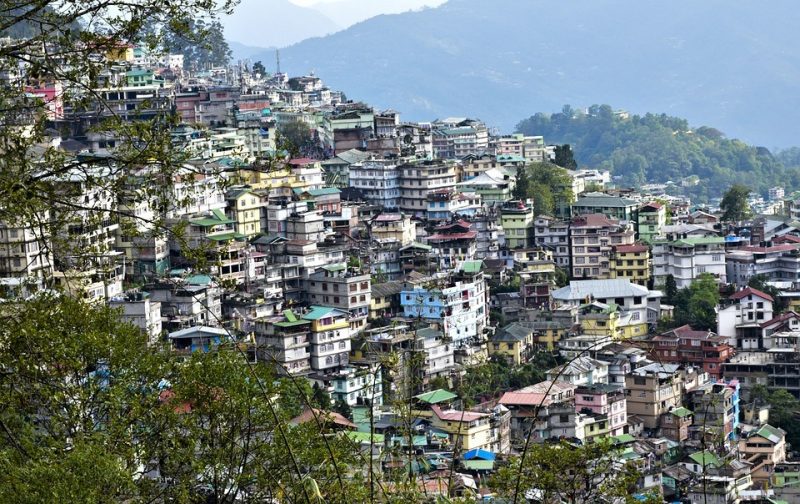Big ambitions: A small Indian state takes on the Global Goals

Sikkim has a proud history of protecting the environment. In 2016, it became the first and only organic state in India, and it has won international awards on sustainability efforts. But, as the state has built one of the fastest growing economies in India, with average net growth rate of 18.8%, its government and citizens see the urgency of enshrining a green and fair approach to development.
About the law
The proposed Act, currently titled the Sikkim Wellbeing of Generations Bill 2017, is founded on guiding principles derived from the SDGs framework and will aid the development planning of each of the state’s departments. It will also help to provide communities and civil society organisations with the means to hold the government accountable for setting ecologically, socially and economically sustainable targets and their corresponding performances. Plans and evaluations therefore will be made publically available.
These guidelines will further work on two levels; to inherently drive planning of each state department towards sustainable development, as well as to ensure convergence within various departments to remove instances of operational conflicts. This is something Sikkim has been seeing increasingly with the growing number of hydroelectric power plants in the state which results in conflicts between the Energy and Power Department - the department that oversees the HEP Plants, and the Forest, Environment and Wildlife Management Department which provides environmental clearances.
Shaping the law
In line with the spirit of the SDGs, the bill is being created through a participatory process involving health professionals, farmers, elected representatives, education officers, teachers, young people, industries and NGOs. Care has been taken to include groups whose voices run the risk of being silenced during planning processes, including the state’s drug user community and representatives from rehabilitation centres (Sikkim has a high rate substance use), its farmer producer organisations as well as its active civil society groups. Industries attracted to the state because of its subsidies and tax incentives have also been represented in these discussions. They are an important stakeholder group that will be heavily impacted by the proposed law and will also directly affect the state’s ecological, social and economic sustainability.
This consultative process has helped identify numerous on-ground challenges related to the enforcement of existing laws and policies, as well as the gaps in monitoring and reporting. The proposed law, with the help of experts and civil society groups hopes to fill such gaps either through creation and implementation of new policies (especially ones that are contextualized to the needs of a mountain state) or through improving the existing policies’ implementation.
Next steps
The Bill is scheduled to be presented to the state’s Legislative Assembly in July 2017. Once the bill is passed, Sikkim will be the first state in India to have legislation on the SDGs and will be become one of the few states, along with Assam, Madhya Pradesh and Kerala to actively incorporate the SDGs framework into their development planning. This will be followed by state-wide awareness generation campaigns for citizens, government executives and legislators to help familiarise them with the SDGs agenda and the new Act.
However, the true success of this attempt will be measured by how actively the people of Sikkim check their Government’s performance on its promises and how often they measure its progress in conjunction with the principles of a holistic, green, fair and inclusive development paradigm.
Tarang Singh, Development Alternatives
A longer version of this blog is available from Development Alternatives. See more from the GEC-led dialogues in India by visiting http://map-sa.net/index.ph
Image credit: Shubham Sharma


